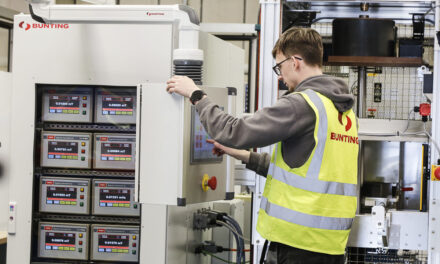Eatron Technologies is to accelerate the development of automotive-quality Artificial Intelligence (AI), following a seven figure investment by German Tier 1 Hirschvogel Automotive Group. UK-based Eatron is working with vehicle manufacturers worldwide to introduce AI where it can bring the greatest benefits, including longer battery life and higher usable energy densities for electric vehicles and a more natural feel for Advanced Driver Assistance Systems (ADAS).
AI is widely believed to offer considerable opportunities in these and several other areas where rapid development is required, but Eatron’s managing director, Dr Umut Genc, cautions that to meet automotive standards for safety and affordability it must be applied selectively, as a complement to proven software approaches.
“Our rapid growth this year is due to a combination of innovation and pragmatism,” he explains. “Long careers with top global automotive consultancies have taught our leadership team that however exciting innovation might be, it will only succeed if it is focussed on adding value for the vehicle manufacturer without compromising the robustness and affordability expected of our industry.”
Dr Genc sees two initial areas where he believes Eatron’s automotive safe AI will make a substantial contribution. “Advanced Driver Assistance Systems are becoming rapidly more capable, but that means more cost, more calibration and more testing, and often they still feel slightly unnatural when they are controlling vehicle functions,” he explains. “AI can learn from how people drive so can be taught to make their actions feel more reassuring.” With increasing consumer appetite for ‘tech’ features such as automated lane keeping and valet parking, and the rise of active safety in NCAP ratings, Dr Genc sees rapid growth in demand for ADAS software platforms that can be quickly and affordably integrated then continuously upgraded to higher levels of autonomy.
The second area is the pressing need to increase the usable energy density of hybrid and electric vehicle batteries so that electric driving range can be maximised; a requirement that is intensified by the intention of the UK and other governments to ban the sale of vehicles that do not offer an as yet unspecified zero emissions range. “Getting more energy out of batteries without increasing cost or weight requires more effective and precise battery management,” Dr Genc explains. “Introducing AI to the Battery Management System (BMS), so that each individual cell can be managed intelligently, will allow the useable energy density to be increased while also improving battery life and reducing the recycling requirement: a dream combination that’s very hard to achieve in any other way.”
Eatron’s BMS can be seamlessly upgraded to include complete AI-powered battery analytics with cloud communications, allowing valuable additional features like predictive maintenance to be added when required.
Both of these technology areas are based on Eatron’s physics-based intelligent software platform with automotive-safe AI applied where it will bring the highest value for the vehicle manufacturer. The modular structure of the platform allows fast, flexible configuration of new applications at a price point that is well-suited to low volume programmes. Eatron’s technology is hardware independent and can be supplied as software alone or as physical modules ready for assembly into a vehicle.
Further evidence of the company’s expertise comes from its third application area, intelligent chassis integration. “A substantial Asian manufacturer of electric vehicles was looking for a way to integrate chassis technologies from different suppliers so they could be effectively managed as a single system,” explains Dr Genc. “Even though we are a new player in chassis systems, they recognised the power of our software platform and the speed with which our team could help them integrate our technology.” This application is scheduled for production by end of 2021.
Eatron’s technology director Can Kurtulus says the additional investment will help him to recruit up to 20 new engineers to support customer programmes and R&D that will allow new features to be seamlessly integrated. “Hirschvogel chose Eatron because we have a proven, physics-based software platform from which we can quickly develop a range of applications in high demand areas,” he explains. “For us, it also brings access to the Hirschvogel New Mobility Ecosystem, a group of companies that provide synergistic hardware and software expertise that will further accelerate the application of Eatron’s technologies.”
“We all know that software is at the heart of future mobility, but it is not just one revolution,” concludes Dr Genc. “With intelligent physics-based software designed for the integration of automotive-safe AI, we are beginning a new roadmap that will help vehicle manufacturers meet demanding targets and add new features far more quickly than was previously possible. This is where the software revolution really begins.”


